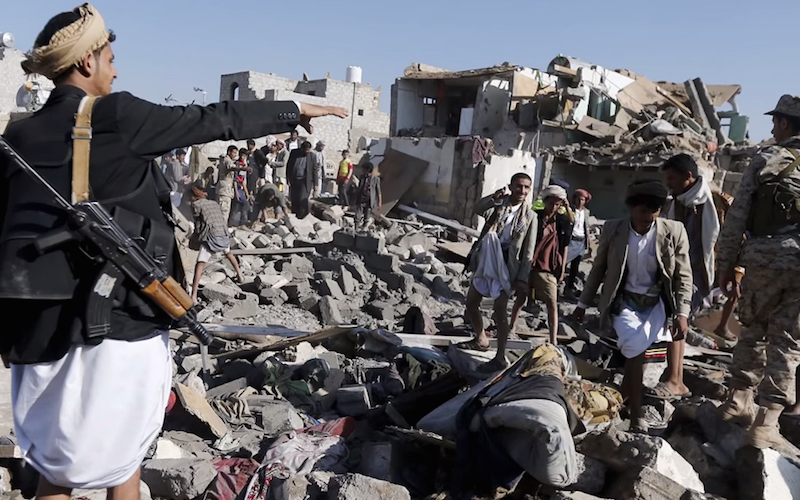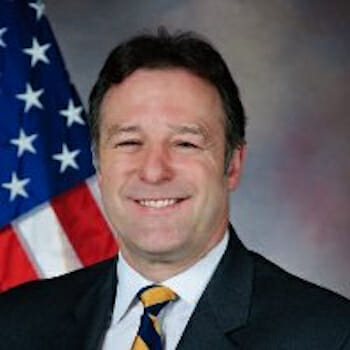
Yemen: Time to Talk?
Yemenis are divided. Some support and others oppose the Saudi-led collation against the alliance of forces of Houthi rebels and Army units loyal to former President Ali Abdullah Saleh; the stance is not surprising. Some argue Yemen has been engaged in a civil war since the modern state was created in 1990. Yemenis have been divided before; some supported and some opposed the recent revolutionary events during the so-called Arab Spring in 2011. Some hedged to see what Saleh would do or whether the country would arrive at the “sunny uplands” envisioned by the protests. Today, Yemenis find themselves in an unenviable position; they must either suffer under the repression and atrocities of outlawed Houthis and their ally Saleh or support the Saudi-led collation.
Many Yemenis fear that the situation in the country is already like Syria, Iraq and Libya, and actually getting worse. Even before the air strikes began 16 of 24 million Yemenis relied on humanitarian assistance, 10 million did not have enough food to eat, 9 million lacked basic medical care and 13 million did not have access to clean drinking water. Yemenis fear an unprecedented humanitarian crisis. Is it time to talk?
Houthi acts of cruelty since their seizure of power in Sana’a have made many Yemeni justifiably anxious about their future. Houthis target everyone who opposes their rule, with no exception.
They have broken into the houses of their opponents, arrested many, particularly prominent members of the Islah Party. They put Yemen’s President Hadi and government members under unlawful house arrest. Hadi escaped to Aden which he named the provisional capital. The Houthis called for a public campaign to invade and take control of southern and middle cities, under the oft used narrative of countering Al Qaeda on the Arabian Peninsula (AQAP) and Daesh. As the Houthi-Saleh alliance forces advanced towards Aden, Hadi appealed for an intervention. The response of the Saudi-led coalition was as unexpected as it was instant.
The coalition rapidly attacked Houthi military sites and weapons. They have targeted insurgent supply lines and ammunition depots. They have largely spared populated areas. History tells us that air attacks are not enough to win a war; jets and rockets do not hold ground. And so between the raids, the Houthis tighten their control over the capital Sana’a and Saleh maneuvers. Since it started the Houthis have detained more than 120 opponents; these acts of detention signal an effort on the ground to root out suspected supporters of the Saudi-led alliance air strikes. Saleh has moved Republican Guard Army units into the fight; these units were never ideologically under Hadi’s command and always remained loyal to Saleh and his son. They are strong because they were equipped and trained by America; but they were resourced to counterterrorism, not to be utilized to support Saleh rising from the ashes. The Houthi-Saleh alliance holds the ground the Saudi-led coalition does not. Despite almost three weeks of effort, the air strikes – unfortunately – have not yet effectively stopped the advance to Aden nor secured and safeguarded the people.
The situation in Aden is grave. Civilians are in real danger. According to reports more than 300 people were killed there in the past two weeks. Many were shot by snipers. There are bodies in the streets. The people of Aden are under siege and water supplies have been disrupted in some areas. There is a real threat of the spread of disease. Health services are stretched to breaking as hospitals struggle to treat the large numbers of wounded; they have insufficient supplies. Power cuts in the city are prolonged. In many Yemeni cities supplies of food, fuel and water are dwindling; government services are deteriorating rapidly. There are stories of week-long queues at petrol stations!
If the Saudi-led coalition cannot stop the Houthi-Saleh alliance moving south to capture Aden then either a land campaign must begin immediately to secure the people, which seems unlikely, or there must be a ceasefire to relieve the suffering. Yemenis are a hardy group, but if the current conflict continues to be indecisive, there could be no Yemeni to save. Is it time to talk?

